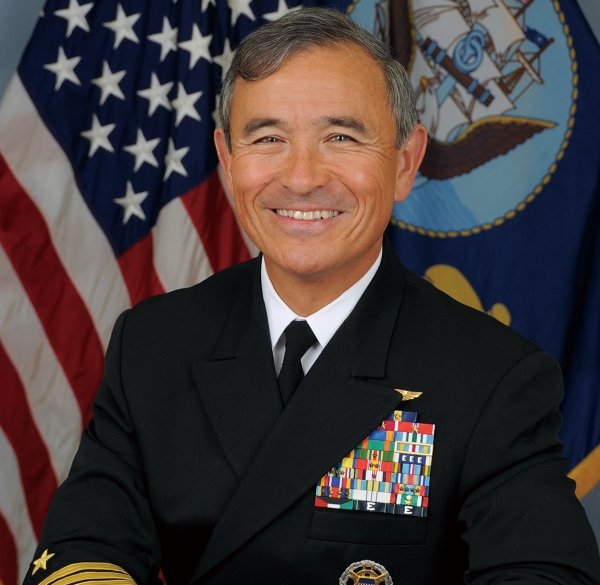
해리 해리스 주한 미대사는 세계에서 가장 민감한 외교 임무중 하나를 맡고 있다. 그는 한·미에 적대적인 북한 정권을 달래기 위해 헌신하는 정부와 잘 지내면서 한미동맹을 수호해야 한다.
최고이며 가장 경험이 많은 외교관들에게는 이러한 역할이 어려울 것이다. 하지만 해리스는 외교 경험이 전혀 없는 상태에서 2018년 6월 대사의 직위에 올랐다. 도널드 트럼프 대통령이 싱가포르에서 북한의 김정은과 정상회담을 갖고 전 세계적으로 최대의 홍보를 했지만 최하의 성과를 낸 후 불과 며칠 만에 전격적으로 임명된 것이다.
북한의 핵 포기가 아니라 한반도 비핵화를 모호하게 언급한 트럼프-김 공동선언에도 불구하고 북한은 핵탄두를 포기하거나 생산을 중단하지 않을 것이다. 그렇다, 싱가포르 정상회담은 한 가지 부정적인 결과를 낳았다. 트럼프 대통령은 한미 양국군이 함께 작전 경험을 쌓아야 한다고 조언해왔을 전 해병대사령관 출신인 짐 매티스 국방장관에게도 알리지 않고 연례 한미 연합훈련을 취소했다.
태평양에서 미군을 지휘하는 제독으로 퇴역한 해리스는 워게임의 중요성을 잘 알고 있다. 그는 2만8500명의 주한미군 방위분담금 장기간의 협상에서 한미동맹이 무너질 위험에 적절히 대응해야 할 것이다.
그는 또 문 대통령이 해체하기를 원했으나 마지못해 매티스 국방장관의 후임인 마크 에스퍼 국방장관의 압박을 받아 유지하기로 합의한 한일 군사정보보호협정(GSOMIA)에 따른 정보공유 등 한일관계에 대해서도 의견을 가져야 한다.
문제는 해리스가 군의 최고 자리에 오른 자질에도 불구하고 외교관이 아니라는 점이다. 그는 호주대사로서 우아하게 은퇴할 예정이었다, 호주는 그가 잘 지낼 수 있었던 우호적인 우방이다.
그러나 지역과 문제를 잘 아는 사람이 필요해 현 직책에 임명되었다. 호주에서 한국으로 부임을 요구했던 마이크 폼페이오 국무장관은 그를 학생 때 시위하며 한미동맹에 반대했던 좌파들로 가득 찬 정부를 상대로 미국의 입장을 진전시킬 수 있는 적격자로 봤다.
워게임 중요성 알아
마크 리퍼트 전 주한 미대사가 떠난 뒤 미국은 18개월 동안 주한 미대사를 임명하지 않아 이번 임무는 중대했다. 트럼프 대통령의 전임자인 버락 오바마가 임명한 리퍼트는 서울에 오기 전 국가안전보장회의(NSC)와 국방부에서 근무했다. 한국에 있는 동안 그는 꽤 인기를 얻었으며, 좌익 광신자의 칼 공격으로 오른쪽 뺨에 80바늘을 꿰매는 상처로 그의 이미지는 향상되었다.
마크와 마크(한 명은 끝에 k로, 다른 한 명은 ‘c’로) 그리고 다른 전임자들과 달리 해리스 대사는 이상하게도 거침없이 말해 왔다. 가장 최근에 문재인 대통령이 신년사에서 개별적인 방식으로 북한 관광을 재개할 수 있다는 희망을 피력한 지 며칠 후 해리스는 제재 위반의 위험성을 공개적으로 경고했다. 그는 그러한 결정이 분명히 한국인들을 압박하는 장치인 일종의 공동위원회를 거쳐야 할 필요성에 대해 막연하게 말했다.
해리스 발언의 문제는 그것들이 문 대통령의 희망 사항에 대한 직접적이며 공개적인 반박처럼 보인다는 것이다. 이제 그는 논란이 많고 거리낌이 없으며 심지어 그가 만들어내는 반응에 무감각하다는 평판을 받고 있다. 무엇보다 그는 40년 동안 면도를 깨끗이 한 해군 장교였지만 지금은 콧수염을 기르고 있다.
일본인 어머니의 아들이자 미국의 직업 해군인 그는 고 히로히토 일왕이나 심지어 전쟁 당시 일본의 지도자였던 도조 히데키 전범과 콧수염을 기르는 데 있어 닮은 점이 있다.해리스의 콧수염은 재미있는 이야기겠지만 트럼프 대통령이 방위비 분담에 한국이 더 많은 돈을 분담하라는 요구는 현재 많은 혼란을 야기하고 있다.
주한미군사령부는 방위비 자금 지원이 중단될 경우 미군기지에서 일하는 9000명의 한국인들에게 4월까지 해고될 수도 있다는 통지를 했다. 트럼프는 김정은을 세 번이나 만나 돌파구를 마련했다고 믿을지 모르지만 어디서도 좋은 소식은 없다.
해리스 대사의 임무는 트럼프 대통령이 한반도에 있어 즉 남한과 북한에 대해 무슨 행동을 할지 혹은 다음에는 무슨 말을 할지 아무도 모른다는 사실 때문에 쉽지 않다. 언론과 문 대통령 추종자들로부터 집중포화를 받는 군 출신인 해리스는 최선책으로 머리를 좀 낮추고 침묵을 지켜야겠다고 결심할지도 모른다.

U.S. Ambassador Harris, Former Admiral In Command of U.S. Pacific Forces, Under Fire From Leftists, Media
The U.S. ambassador to the Republic of Korea, Harry Harris, has one of the world’s more sensitive diplomatic missions. He’s got to defend the U.S.-Korean alliance while getting along with a government that’s dedicated to appeasing a North Korean regime that’s hostile to the U.S. and South Korea.
The role would be difficult for the best, most experienced of diplomats, but Harris came into his position in June of 2018 with zero diplomatic experience. The timing was extraordinary, just days after President Donald Trump sat down in Singapore with North Korea’s Kim Jong-un for a summit that achieved maximum global publicity with minimum results. No, North Korea would not give up its nuclear warheads, or stop producing them, despite a Trump-Kim joint declaration that spoke vaguely of denuclearization of the Korean peninsula, not North Korea. Yes, the summit did achieve one negative result: Trump right afterward called off annual joint exercises involving U.S. and South Korean troops without bothering to inform his defense secretary, Jim Mattis, a former marine general who would have advised him of the need for troops from the two countries to gain experience operating together.
Having retired as the admiral in command of U.S. forces in the Pacific, Harris is well aware of the importance of war games. He would be keenly attuned to the danger of the alliance falling apart in prolonged negotiations between the U.S. and South Korea on the South’s contribution to keeping America’s 28,500 troops in Korea. He also has to have opinions about relations between Japan and South Korea, including intelligence-sharing under GSOMIA, the General Security of Military Information Agreement that Moon wanted to dissolve but reluctantly agreed to maintain under pressure from Mattis’ successor, Defense Secretary Mark Esper.
The problem is that Harris, for all his skills at rising to the top of the military hierarchy, is no diplomat. He was to have retired gracefully as ambassador to Australia, a friendly like-minded ally where he would have gotten along just fine, but instead was named to his present post in view of the need for someone who knew the area and the issues. Secretary of State Mike Pompeo, who had called for the switch from Australia to South Korea, saw him as highly qualified to advance the American position with a government filled with leftists who had once opposed the alliance as student protesters.
The task was critical since the U.S. had not had an ambassador to South Korea after the departure of Mark Lippert a full 18 months earlier. A protege of Trump’s predecessor, Barrack Obama, Lippert had served on the National Security Council and in the Pentagon before coming to Seoul. While in Korea he had been quite popular, his image enhanced as a result of a knife attack by a leftist fanatic that had left him with a gash in his right cheek that required 80 stitches to sew up.
Unlike Mark and Marc (one spells his first name with a “k” at the end, the other with a “c”) and the others before them, Harris has been oddly outspoken. Most recently, days after President Moon Jae-in in New Year’s remarks had expressed hopes for resuming tours to North Korea maybe on an individual basis, Harris warned publicly of the dangers of violating sanctions. He talked vaguely of the need for such decisions to go through some sort of joint committee, obviously a device for high-pressuring Koreans.
The problem with Harris’ comments is they seemed like a direct, open rebuttal of Moon’s wishful thinking. Now he’s got a reputation as controversial, outspoken, even insensitive to the reactions that he’s creating. On top of all else, after four decades as a clean-shaven naval officer, he’s grown a mustache. The son of a Japanese mother and a career U.S. navy man, he bears a certain resemblance to the late Japanese Emperor Hirohito or even, God forbid, the reviled war-time Japanese leader, Hideki Tojo, both of whom were mustached.
Harris’ mustache may make for fun stories, but Trump’s demands for South Korea to pay much, much more for U.S. defense are creating still more confusion. The U.S. command has just sent notices to 9,000 South Koreans working on U.S. bases that they may be laid off by April if the funding stops.
Trump may believe he scored a breakthrough by seeing Kim three times, but the happy talk has gotten nowhere. Harris’s job is not made easier by the fact that no one knows where Trump is going on Korea, North or South, what he will do or say next. Under fire from the media and Moon’s people, Harris as a military man may decide the best course is to keep his head down and his mouth shut.
번역 미래한국 편집부
외부게재시 개인은 출처와 링크를 밝혀주시고, 언론사는 전문게재의 경우 본사와 협의 바랍니다.


